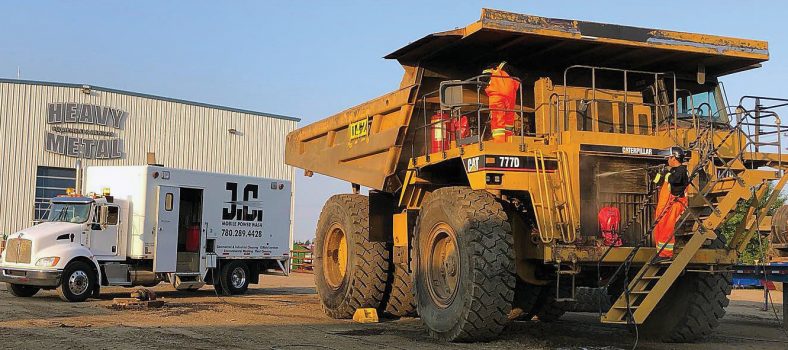It is no longer business as usual. The long-held belief that companies exist solely to serve the needs of shareholders is being challenged. Employees, customers and investors increasingly see private enterprise as a vital player in a much wider sociological, ecological, and economic system—and business leaders are now expected to not only create value for their companies, but also for the communities in which they operate.
Countries are at different starting points in their sustainability journeys. With Canada’s emissions exceeding the G20 average, organizations are under pressure to make sustainability a top business priority. Many are seizing this opportunity to transition, with countless leaders pledging their commitment to net-zero targets and other sustainability goals. The challenge will be how to translate this goodwill into action.
Radical transformation — including the kind required to transition to sustainable business — is an arduous task. There is no pre-established playbook, and it involves many complex tradeoffs. Yet those who are able to drive concerted sustainability action will unlock myriad financial and non-financial dividends — from faster top-line growth to more engaged employees and more loyal customers.
Against this backdrop, Russell Reynolds Associates set out to understand how much progress organizations are making towards sustainability across 11 countries — and map a path forward. By surveying three distinct groups — C-suite executives, next-generation leaders and employees — we were able to identify what a cross-section of the global workforce thinks about the maturity of their organization’s sustainability strategy and the ability of their leaders to advance the agenda.
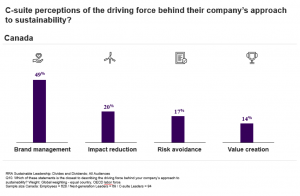
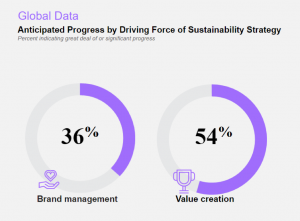
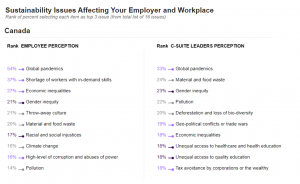
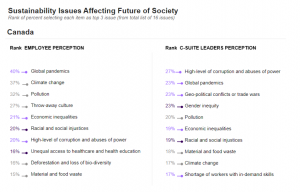
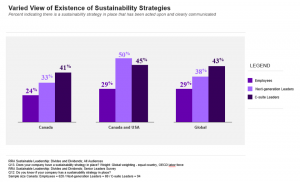
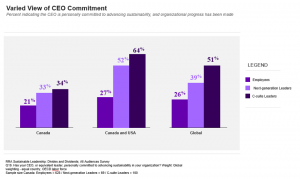 In Canada, three key themes emerged:
In Canada, three key themes emerged:
1. Macro, Micro and “Me”
There is an opportunity for Canadian C-suite leaders to better understand the issues that their employees care about. When asked about the top challenges affecting the future of society, C-suite leaders zeroed-in on economic challenges, such as corruption and trade wars. Employees, meanwhile, centered on environmental threats, such as climate change and pollution. Leaders who simultaneously address business-level issues and employee concerns stand the best chance of securing buy-in for their sustainability strategies.
2. Brand Management Versus Value-Creation
Canadian organizations are at risk of only engaging with sustainability at a surface level: 49 percent of C-suite leaders admit that their sustainability actions are motivated by brand management concerns, the highest proportion across the mature markets we studied. By comparison, only 14 percent say value creation sets the agenda. Looking ahead, it will be critical for leaders to challenge perceptions that sustainability is only a reputational issue to be managed.
3. Next-Generation Leaders at the Vanguard
Canadian next-generation leaders are heavily involved in driving sustainability action. In the past two years, 39 percent have had three or more job responsibilities to improve environmental or social outcomes, in line with global trends. Yet there is an opportunity to expose Canada’s future executives to a broader range of sustainability experiences. For example, just 14 percent have hands-on experiences in making products or services more environmentally friendly, compared to 28 percent globally.
Ultimately, pivoting towards a more sustainable future will be one of the hardest journeys that businesses will make in the next decade. Realizing this shift will come down to one thing: courageous leadership. Executives who have the freedom — and vision — to completely rethink strategy, business models and operations, and the humility to bring others along on their journey, will likely have the biggest impact on sustainability.
In 2020, we worked with the United Nations Global Compact to develop a blueprint for sustainable leadership, revealing the specific competencies that CEOs and board directors will need to deliver sustainability outcomes alongside financial success. Building on this work, we now set out a three-part framework to help you accelerate your transition to sustainable business. We share practical advice on how to embed sustainability across your business strategy and leadership frameworks and how to effectively engage and build employee engagement around your vision.
Russell Reynolds Associates is deeply committed to supporting its clients on this important change in the business environment. As this report shows, Canada has a sizeable opportunity to distinguish itself on this critical topic.
About the Study
The business case for sustainability is undeniable. Leaders who bridge the divides that threaten our global societies will yield significant triple-line dividends.
In a major global survey C-suite executives, next-gen leaders and employees, we reveal how leaders can grasp this opportunity: What are the environmental, social and economic divides that leaders should solve? How ready are leaders to advance the sustainability agenda? What actions should leaders take to deliver lasting value for people, planet and profit. The study was conducted with 9,500 employees and next-generation leaders in 11 growth and mature markets from April 16 to May 12, 2021. In Canada, we surveyed 697 employees and next-generation leaders and 94 C-suite leaders.

